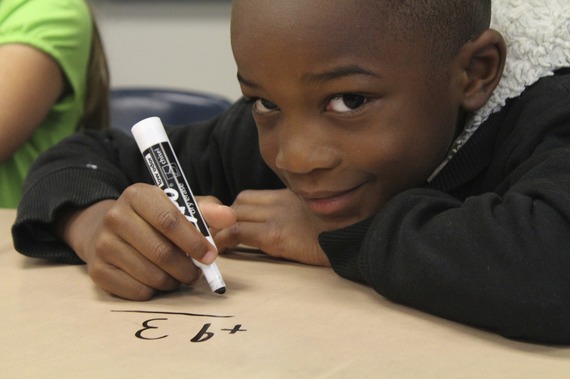Algorithms, decimals, division, fractions, sums-these seem like harmless math terms. But, to many children, they bring out fear and even anxiety when it comes to mathematics. Children now, more than ever are struggling with math. What is the cause for concern and what can you do to fix it?
1. Math Can Be Unforgiving When Students Do Not Seek Help
Studies show that students should learn math concepts in a spiral process. This has benefits, but also disadvantages. This means that a topic is introduced, opportunities for practice and feedback occur between the student and teacher, and then they move on to the next topic. As long as the skills are introduced, the child should (and will) see them again, and again.
They are given ample opportunity to review what they learned as the teacher continues on with a specific unit. While this sounds great in theory; if a student is truly struggling with a skill and they do no master it over time, nor do they seek help to understand the topic; there is no way they are going to be able to "use it" and apply it in order to build on another skill.
For example, students must understand thoroughly that multiplication is repeated addition. They must be able to make connections between numbers and view them as a fact family. If they cannot do this, they are not going to be able to pull out the knowledge and understanding they need in order to later divide numbers.
So in essence, if students do not have a certain skill mastered because they don't seek out help for their lack of understanding, they will never be able to progress forward with other important skills.
2. If You Don't Understand Terms, You'll Get Lost
Math is loaded with vocabulary words. Factor, sum, equation, yard, dividend, divisor, factor etc. can be terrifying to a child if they don't understand what these math concepts mean. In some cases, teachers don't spend enough time discussing the terms or they don't offer enough practice when it comes to using and applying the words in real life situations.
Math vocabulary, much like reading vocabulary words; need to be put into perspective for children so they can activate their prior knowledge or build their background in order to make connections with each and every word. Memorizing terms is not enough. Students must be able to understand the words' meaning and context.
Seasoned math tutor and founder of Eureka Math Tutors Michael Priyev explains, "most kids know what 6 ÷ 3 is, but have trouble figuring out more complex fractions like 1 ÷ ½. A few might remember the algorithm of flipping the last fraction and multiplying, but when asked why it is done in the first place they become stuck."
Michael further adds that "math, at any level, heavily relies on critical thinking skills, and those skills are exactly what many math school students lack today. If a student could understand that 6 ÷ 3 = 2 because exactly 2 threes fit into 6, then they can use the same idea to discover that 1 ÷ ½. = 2 because exactly 2 halves fit into 1. This concept can then be used as a tool to solve many different problems related to fractions mentally."
3. Students Don't Practice
The spiral approach to teaching math seems to be the preferred way that most school districts are having their teachers present today's math skills. But, math is and should be systematic with learning basic facts.
Children aren't practicing repetitively at home with the basics in order to build speed and have that extra exposure. Also, older children tend to watch and listen to their teachers present their math lessons in class, and they go home and think they truly understand what was taught. But, for many students; when they pick up the pencil and paper to try a math problem on their own, they can't complete the problem independently. Students need repetitive practice when it comes to learning any new math concepts, in the classroom and at home.
There are many other variables that impact students' achievement in math, but these three are among the largest factors that are affecting today's learners. Be sure to encourage your child to ask questions if they don't understand something, apply math vocabulary regularly, and take part in drill and practice math problems on a regular basis at home.
Your takeaway?
Help your kids practice math. Research basic concepts online. Enlist the help of teachers or tutors when necessary. Reinforce that math is simple and not scary. See.....you got this!
You can find me on my personal blog www.followmeaway.com



